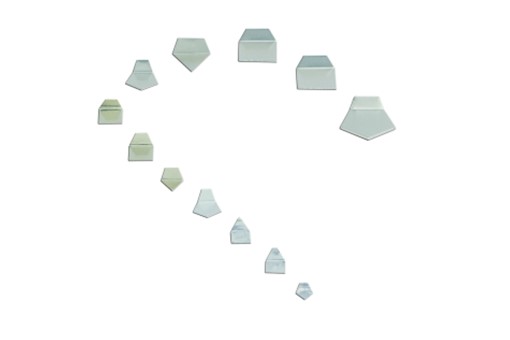Are genetically modified plants and animals safe, experts explain

A regulatory act adopted in Thailand allows the use of plants and animals with edited genomes in agriculture; the document will come into force in mid-August. The country's Ministry of Agriculture believes that this measure will be part of a national program to increase the income of local farmers by 3 times in 4 years. it is supposed to certify domestic developments that will help to displace imported GMOs from the market and overcome dependence on foreign suppliers.
The Thai authorities clearly distinguish GIRO from GMO, setting as a criterion the complete absence of sequences from other organisms in the genome. The cultivation of GMO was banned in Thailand after an incident with the uncontrolled spread of a GM plant during testing with negative economic consequences for agriculture. The import of GMO is allowed, but limited to lines of soybeans, corn, industrial microorganisms that have passed biological safety studies .
"As Thailand positions itself as a 'seed hub', the global agricultural community is watching this development closely. The success of the initiative could change the leaders of global food production," the Royal Herald said in a statement.
In the Russian Federation, the status of GIRO is not regulated and is actively discussed. According to current legislation, part of GIRO falls under the definition of GMO, although the technology of genome editing is more accurate and safer compared to the technology of transgenesis used to create GMO.
Russian scientists are more reserved in their predictions and say that it is necessary to assess the possible harm to consumers and the environment before calculating the effectiveness for agriculture.
“Research on the negative impact of plant GMOs on productive and laboratory animals is regularly published in scientific journals, although it is also regularly criticized,” Andrey Khishov, chief specialist of the GMO control department of the Federal State Budgetary Institution “VGNKI,” told ViZh.
He noted that genetically modified farm animals are used less frequently for the production of feed and food products, and therefore there are also fewer studies on the negative impact of products obtained from them.
The use of GMOs in agriculture is a controversial issue, largely because there is no clear understanding of the consequences of using products derived from animals with modified genes or food products from processed GM plants.
"It is impossible to predict this at the current stage of scientific development. Eloquent evidence is the negligible share of GMOs that have reached commercial use - although each GMO is based on plans based on advanced scientific data," Andrey Khishov emphasized.
According to him, the benefits obtained from the introduction of GMOs are also far from what was declared. For example, in plant growing, it was not possible to increase the yield by several times from the use of GM lines. "Although in some countries, traditional varieties were displaced by GMOs by 80-90%," he added.
The scientist also drew attention to the negative consequences of growing GM crops. Thus, the maximum excess of the norms for the use of dangerous pesticides is recorded - glyphosate and glufosinate (herbicides used to control weeds - note "ViZh".). The fact is that, for example, GM corn and soybeans can be resistant to ammonium glufosinate and glyphosate, and this leads to massive violations of cultivation technology and a multiple excess of the norms for the use of pesticides. Further, as a consequence, the spread of weeds resistant to a large number of herbicides. And also colossal harm is caused to the environment, pollinating insects and animals.
There are not many countries where the cultivation and growing of GMOs is permitted today. First of all, these are the usa , CANADA , Japan and Australia , some Latin American countries. Often, permission is granted for a limited number of crops, for example, cotton or SUGAR cane in countries where they are the basis of EXPORT and do not affect local traditional crops. Many countries prefer to permit only imports , leaving others the right to be the first in large-scale experiments on agriculture.
In RUSSIA, it is prohibited to breed and grow genetically modified crops and animals, but their import from abroad is permitted. However, their use is permitted only after state registration. All such products must also meet quality and safety requirements.



























































